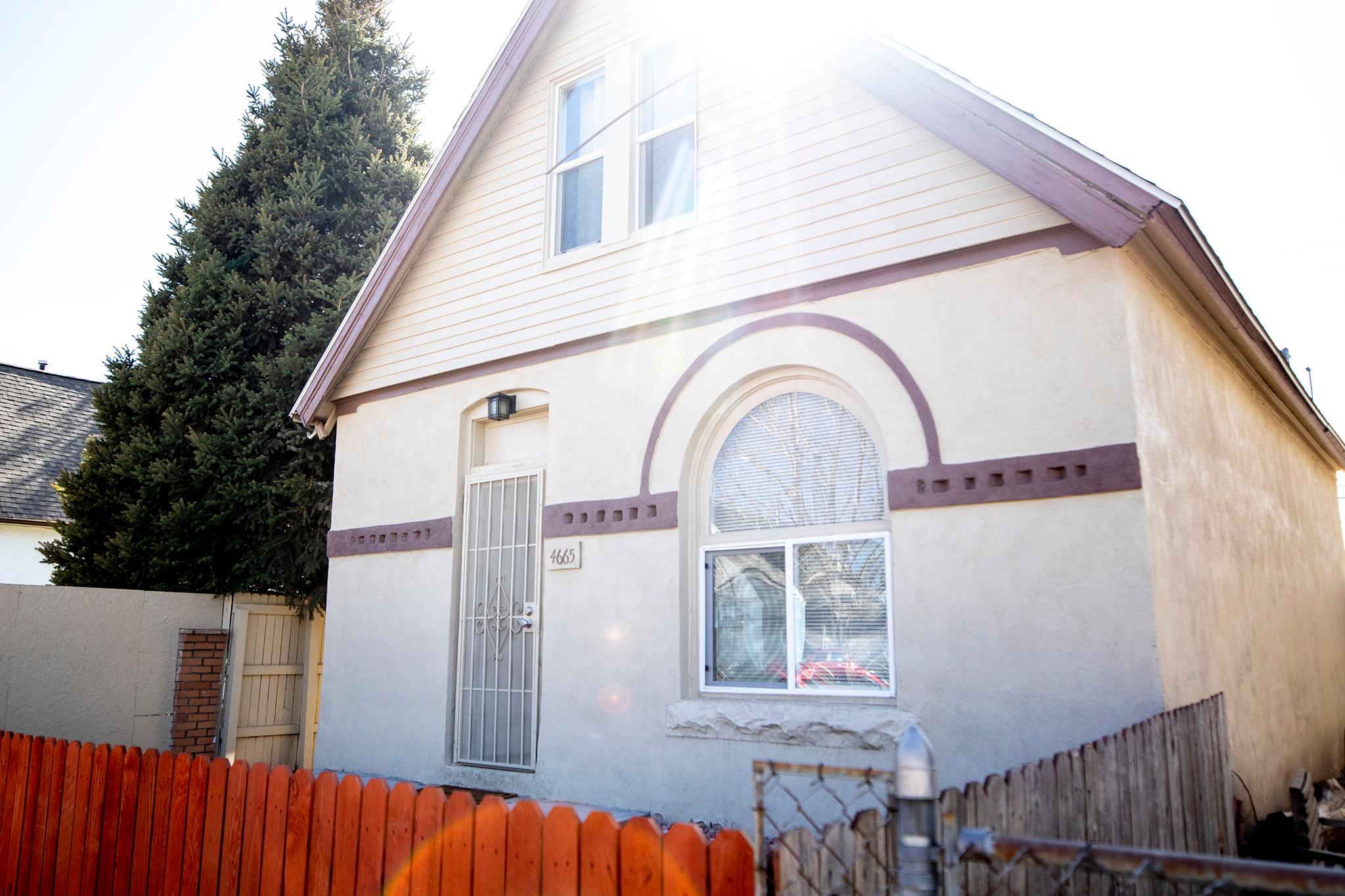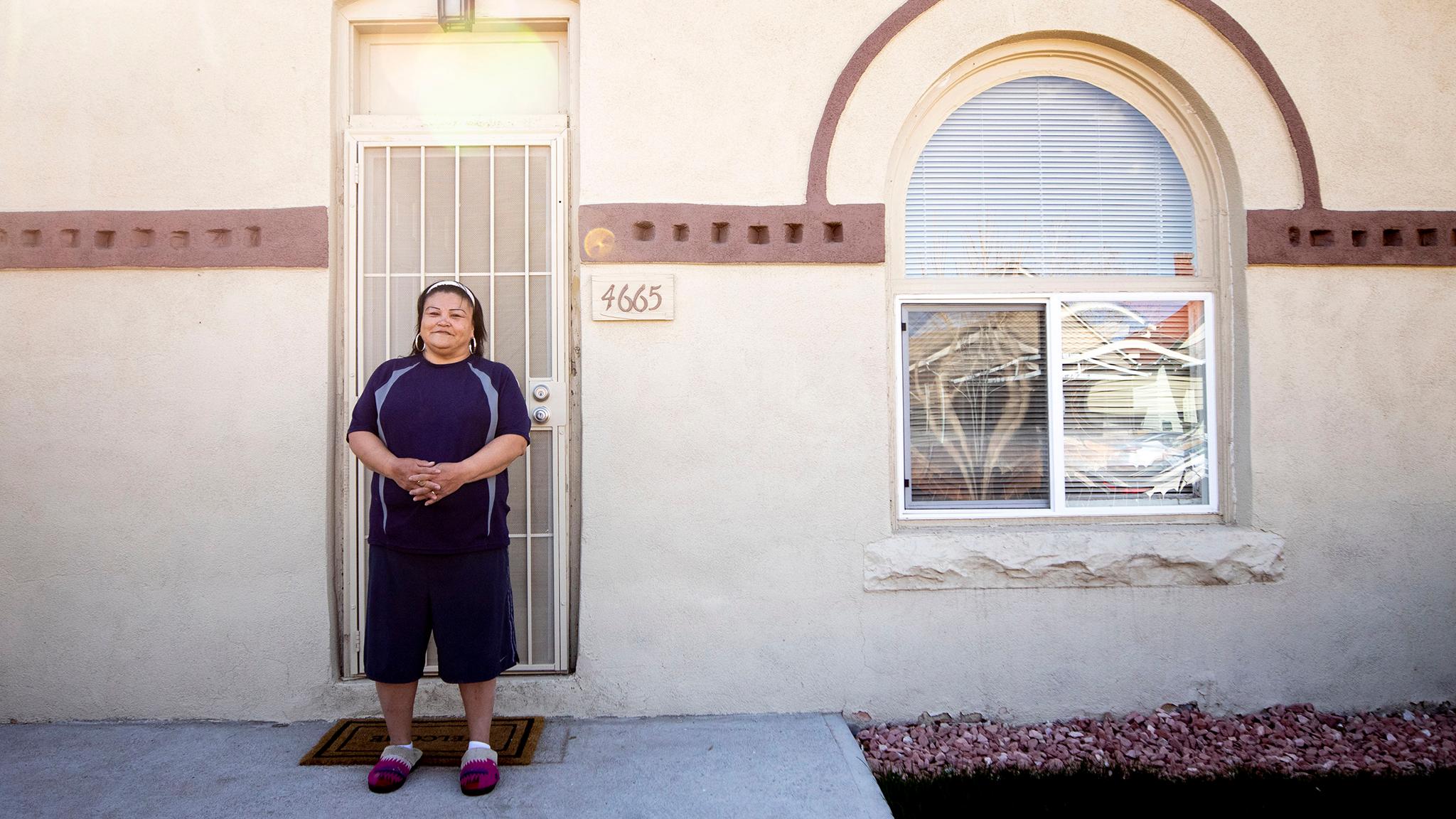The modest stucco and wood trimmed bungalow near Swansea Elementary has a story to tell.
In March, it became the first home sold as part of the GES Community Land Trust. The closing was a milestone in a years-long project of community organizing, researching and fundraising aimed at ensuring working class families don't disappear from the north Denver neighborhoods of Globeville and Elyria-Swansea.
"We're excited to have the first property in the land trust," said Nola Miguel, director of the Globeville, Elyria-Swansea Coalition, the grassroots group that formed the trust.
"It's really a story of a victory for the neighborhood," said Jane Harrington, executive director of the Colorado Community Land Trust, which was brought in by residents of Globeville and Elyria-Swansea as a partner in their trust.
"It shows it can be done. Not without a lot of paperwork," Harrington said, and laughed. "But it can be done."
Reiko Mike closed on the house on March 20 and moved in the next day, managing to get in before Denver came under stay-at-home orders imposed to fight the coronavirus outbreak.
Mike can rattle off a litany of abbreviations -- including CHFA and CHAC -- for organizations she knew little about just months ago. The Colorado Housing and Finance Authority handled her loan for the $170,000 house, and the Colorado Housing Assistance Corporation helped her with a down payment to which she contributed $750 of her own savings.
"There was a lot of collaboration with a lot of different people, with a lot of different agencies," Mike said. "I never thought that in a million years that I would own a house. It just seemed like too far off of a dream. God has just been so good to me. I can't thank him enough, and all the people who helped me."
Mike, who walks with difficulty, gets by on just $803 a month in disability. She had been putting about $200 of that, together with a Section 8 voucher each month, toward a $1,418-per-month two-bedroom apartment in Arvada. Now the federal Section 8 funds cover her entire mortgage of $1,157.
Harrington said Mike benefited from a small program administered by the state Division of Housing that allows Section 8 vouchers to be used to cover mortgages. Mike said a Section 8 case manager in Jefferson County guided her to the program, and from there realtors led her to her Elyria-Swansea house.
The house has a yard out back and in front for her dog and a washer and dryer, which Mike had had to struggle down stairs to reach in the laundry room at her old apartment complex. She first saw the house in December.
"I loved it," she said. "And that's when the ride began."

Miguel, of the Globeville, Elyria-Swansea Coalition, said Mike's purchase using Section 8 shows the trust model can put home ownership in reach of people who have struggled for housing stability.
Mike took a first-time home owner education class required of all CHFA borrowers. She also got lessons on community land trusts from Harrington.
The land under a trust home -- 7,800 square feet, in the case of Mike's -- is owned communally and never sold, taking a major cost out of the equation for buyers, who own only the home and pay a ground lease to the trust. Under the Colorado Community Land Trust model, houses are sold for even less thanks to grants. The Colorado Community Land Trust has been organizing land trusts since 2002, when it started with affordable homes in Lowry.
Homeowners will be able to make a profit when they sell, but will still have to keep the price below market rates. A board of directors composed of homeowners, community members and property experts helps ensure long-term affordability and can intervene to help homeowners who might run into trouble paying their mortgages. That last component is of particular importance in the economic slowdown caused by the coronavirus outbreak.
A trust "can be a tool in a low economy and it can be a tool in a high-priced economy," Miguel said. "We just don't know which we're heading into now."
Brothers Redevelopment, a company that builds and manages affordable housing and provides other services to low-income homeowners and renters, is the GES Community Land Trust's developer partner. Brothers bought three homes to get the project started, renovating the one it sold to Mike, at which point the deed for the land was transferred to the trust and for the house to Mike.
The two other houses Brothers bought were razed, each to be replaced with duplexes. Harrington said work on the duplexes is scheduled to start in May. Construction, particularly of affordable housing, has been allowed to continue despite the state-ordered pause on many other businesses ordered to try to slow the person-to-person spread of the coronavirus. The duplex builder is using a quick modular method that should mean those four homes will be ready for sale by the end of the summer.
Each of the duplexes will have three bedrooms and two and a half bathrooms and sell for $180,000. Miguel said her organization is in touch with about 30 families that have shown interest in the homes, several of whom have been prequalified for loans that she hopes will not be jeopardized by coronavirus layoffs or slowdowns.
The first few sales aren't nearly enough for a trust to be self-sustaining, Harrington said. Now and possibly for years to come, the GES trust land will be part of the Colorado Community Land Trust, which owns the land under more than 200 homes in the state.
Harrington said the GES trust could be independent soon because "GES is masterful at pulling together grants."
An initial $2 million grant came from the Colorado Department of Transportation, awarded as part of the state's efforts to compensate a community expected to be disrupted for years by work to expand Interstate 70, which cuts through Globeville and Elyria-Swansea.
Mayor Michael Hancock announced last May that the city would give another $2 million for the purchase of nine homes for the GES trust.














